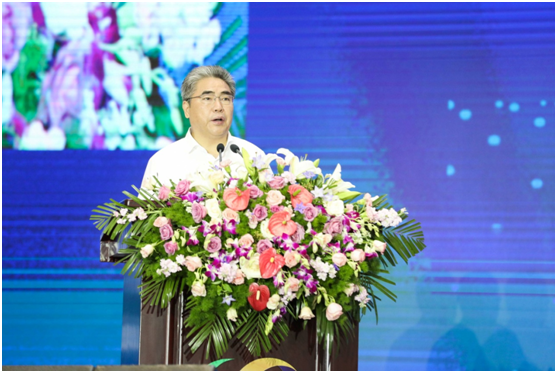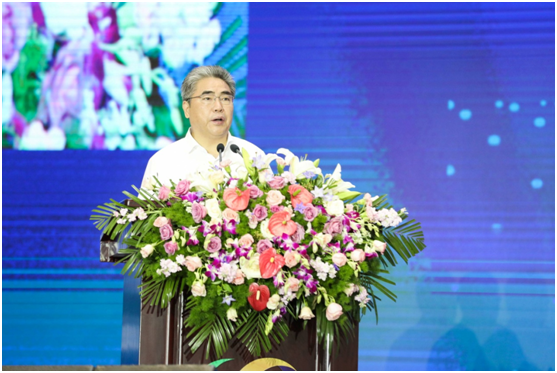
Photo: Top head of Lianyungang City is addressing the opening ceremony of the expo on Sept 10.
NANJING, Sept. 10 (Xinhua) -- The 6th China (Lianyungang) Silk Road International Logistic Expo opened on Tuesday in Lianyungang, a port city in East China's Jiangsu province, highlighting the global logistics cooperation under the Belt and Road Initiative (BRI).
Themed sharing new opportunities under BRI with the new blueprint of land-sea intermodal transport development, the three-day expo boasts six major showcase themes respectively on logistics equipment, logistics technology, logistics services, intelligent logistics, distribution logistics and trade logistics.
Located in northeastern Jiangsu Province, Lianyungang is the start point of the new Eurasian land bridge in the east and takes an important strategic position on the new Asia-Europe land-sea intermodal transport channel.
Benefiting from the geographical advantages and decent port shipping conditions, Lianyungang has been actively facilitating the construction of infrastructure such as port construction under the BRI, stated Xiang Xuelong, the top head of the city when addressing the opening ceremony of the expo.
According to the official, the port city, which was approved to be one of the six new pilot FTZs in China in August this year, will focus on building a crucial international transport hub connecting Asian and European countries and optimizing the city's business environment to further facilitate investment and trade.
Jiangsu Province, one of the most developed provinces in China, has made it clear that it will promote the construction of marine logistic bases such as China-Kazakhstan logistic base, which is situated in Lianyungang.
Sherali Saidamir Jonon, Deputy Secretary-General with Shanghai Cooperation Organization (SCO) pointed out the combination of Eurasian economic union and the BRI has created powerful conditions for the formation of a wide trans-shipment area for goods shipment between Asian and European countries. (Contributed by Wu Shuang, He Lili, edited by Jiang Feifan)




 A single purchase
A single purchase









